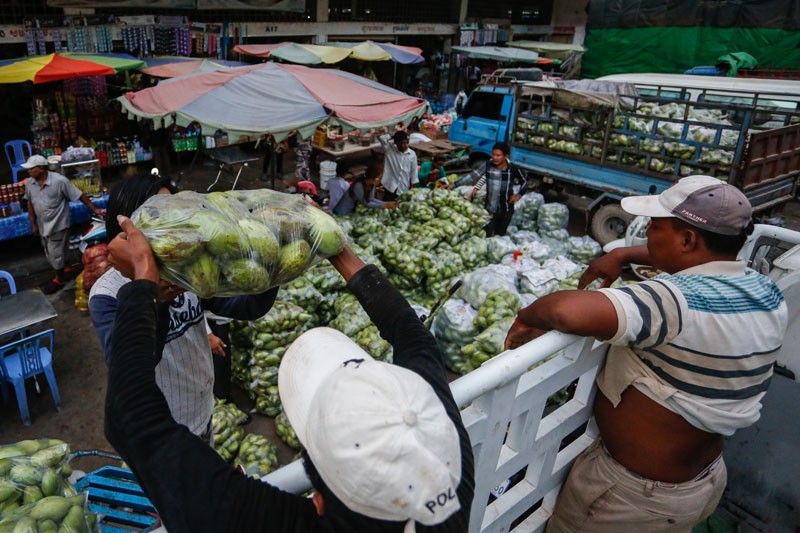The Ministry of Agriculture on Tuesday signed a memorandum of understanding with South Korea to formalize the direct export of fresh mangoes to the East Asian country—the first such deal in the country’s nascent efforts to produce the fruit for foreign markets.
Cambodia currently has about 65,000 hectares of mango plantations countrywide and produces 2.6 million tons per year from a biannual harvest owing to the country’s largely Koe Roemeat mango—a particularly fast-maturing variety.

In a ceremony attended by Agriculture Minister Ouk Rabun and South Korea’s ambassador to Cambodia, Kim Won-jin, the two countries also agreed to place no quotas on mango exports.
Hean Vanhan, deputy director- general of the ministry’s general directorate of agriculture, was present at the signing and said the deal opened new revenue streams for the mango farmers.
“Farmers always shout to seek markets. Currently if the government does not open the markets, sellers and buyers cannot connect to each other for their trade,” Mr. Vanhan said, adding that South Korea would be a fruitful long-term market.
“[South] Korea is a cool country that does not have mango trees and so the price of our mangoes will be higher than selling [unofficially] to Thailand and Vietnam.”
While producers would in theory be able to attain a higher price, In Chay Van, president of the Kompong Speu Mango Association, was skeptical that ordinary farmers would be ready to reap such benefits immediately.
“I think Cambodian farmers cannot change their market destinations yet, because South Korea selects only the best quality mangoes which Cambodia cannot currently produce,” he said.
“The best quality means like clean and best packaged, especially when the mangoes are still on the trees.”
That said, larger-scale mango producers with deep pockets, such as the Mong Reththy Group, were set to benefit, said Mong Reththy, the company’s president.
“There has to be equipment to control the quality of our mangoes. However, the deal would mitigate the challenges of exporting our mangoes because I think equipment would be negotiable,” said Mr. Reththy.
“We have been able to export through others’ [export] licenses, but now it’s very good that we would be able to export directly, showing our faces and our mango products to South Korea.”



